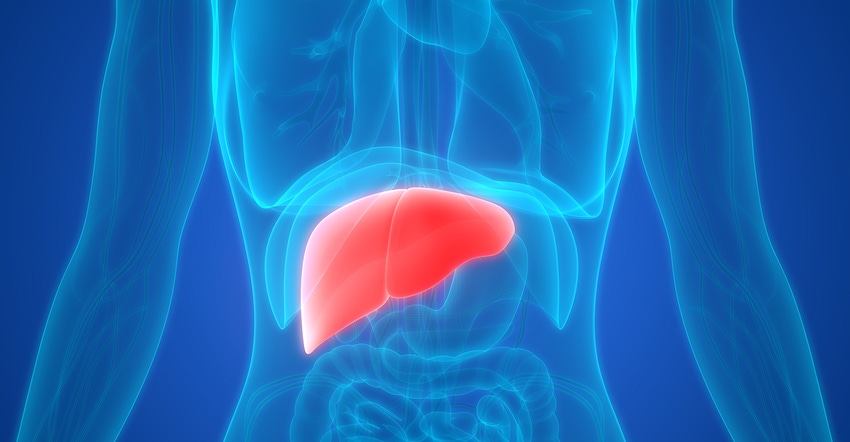Liver health is a rising consumer for many consumers, who would welcome a quality supplement solution.

Non-alcoholic fatty liver disease (NAFLD) is a growing medical issue. Intake of processed food and medication, together with occurrence of diabetes and obesity are all rising, according to the American Liver Foundation. Liver health is set to become a great concern of the modern age, presenting opportunities for nutraceutical development.
Most products on the market are still commodity herbals with little or no clinical or bioavailability data. This is problematic since most solutions addressing liver issues use milk thistle extract: its major active component, silybin, has poor bioavailability. Some manufacturers settle for a mix of different herbals renowned for their traditional use against liver issues, ignoring which parts of the plant should be used and possible cross-interactions between the substances.
Solutions are commonly positioned as “liver detox,” however, no randomized controlled trials have been conducted to assess the effectiveness of commercial detox diets in humans.1
Hepatic health is one of the categories where the gap between demand and availability of innovative solutions is surprising. Despite increasing consumer attention, the market has a lack of high-quality nutraceutical solutions. Importantly, almost no solutions address children directly. This could be due to the less known fact that NAFLD affects children just as frequently as adults.
NAFLD is a common disorder referring to a group of conditions where abnormal hepatic metabolism of fatty acids leads to accumulation of excess fat in the liver, without significant alcohol intake, viral infection or any other specific aetiology susceptible to cause liver disease.
Its development begins with lipid deposition and progresses to involve oxidative stress, inflammation and fibrosis. Non-alcoholic steatohepatitis (NASH) is a more severe form of NAFLD, for which fat accumulation is accompanied by inflammation, fibrosis, scarring of the liver and subsequent loss of function. If left untreated, this can lead to irreversible cirrhosis and ultimately liver failure, or develop into hepatocellular carcinoma, the most common type of liver cancer.
Between 30 and 40 percent of adults in the United States have NAFLD, and 3 to 12 percent of adults in the United States have NASH.2 Researchers estimate that close to 10 percent of U.S. children ages 2 to 19 have NAFLD.3
NAFLD patients rarely show symptoms. No medicines have been approved to treat NAFLD and NASH; patients are typically recommended to follow a strict diet, lose weight and are prescribed diabetes drugs or statins, intended to treat the accompanying effects on insulin metabolism or cardiovascular system.
Early identification is crucial to prevent NAFLD evolution and may improve patient outcomes through treatment intervention. Considering its benefits on countering the early start of NAFLD, supplementation with liver-protective ingredients can record extensive growth in the coming years.
Product formulation
Several scientific publications have demonstrated a certain benefit of supplementation for liver diseases prevention. Most effective nutrients considered were vitamin D and E at high concentrations, omega-3 fatty acids, choline, S-adenosyl-L-methionine (SAMe) and polyphenols from various plant extracts.4 All of them present positive effects on liver protection through anti-inflammatory and antioxidative properties. For now, choline is the only nutrient for which the European Food Safety Authority (EFSA) has authorized a health claim related to liver health: “choline contributes to the maintenance of normal liver function.” As consumers are becoming increasingly educated, it is necessary to formulate a product with scientifically substantiated ingredients, with bioavailability studies, to ensure a quality solution, building trust and brand credibility.
Product development
A mix of carefully chosen ingredients is however not enough to guarantee quality. Nutraceutical manufacturers should test the stability of their finished. The more ingredients incorporated, the higher the chance the product will not be stable throughout the shelf life. This is especially true when developing solutions in user friendly forms. Stability in liquid forms requires significant expertise, but even more so for liver health supplements, which commonly include several complex herbal extracts.
Liver health is a rising indication for which quality solutions are seriously lacking. A product checking all market requirements is inevitably challenging to develop, as clinical substantiation, bioavailability and stability testing all require significant investment. Important to note though, such a solution would be greatly rewarded by consumers, since all factors causing NAFLD are projected to only grow in the future.
Maja Orešnik is the science and research director at PharmaLinea Ltd.
References
1. Klein A, Kiat H. “Detox diets for toxin elimination and weight management: a critical review of the evidence.” J Hum Nutr Diet. 2015 Dec;28(6):675-86. DOI: 10.1111/jhn.12286.
2. Spengler E, Loomba R. “Recommendations for Diagnosis, Referral for Liver Biopsy, and Treatment of Nonalcoholic Fatty Liver Disease and Nonalcoholic Steatohepatitis.” Mayo Clin Proc. 2015 Sep;90(9):1233-46. DOI: 10.1016/j.mayocp.2015.06.013.
3. Schwimmer J. Et al. “Prevalence of fatty liver in children and adolescents.” Pediatrics. 2006 Oct;118(4):1388-93.
4. Barchetta I, Cimini F, Cavallo M. “Vitamin D Supplementation and Non-Alcoholic Fatty Liver Disease: Present and Future.” Nutrients. 2017 Sep 14;9(9). pii: E1015. DOI: 10.3390/nu9091015.
About the Author(s)
You May Also Like






.png?width=800&auto=webp&quality=80&disable=upscale)